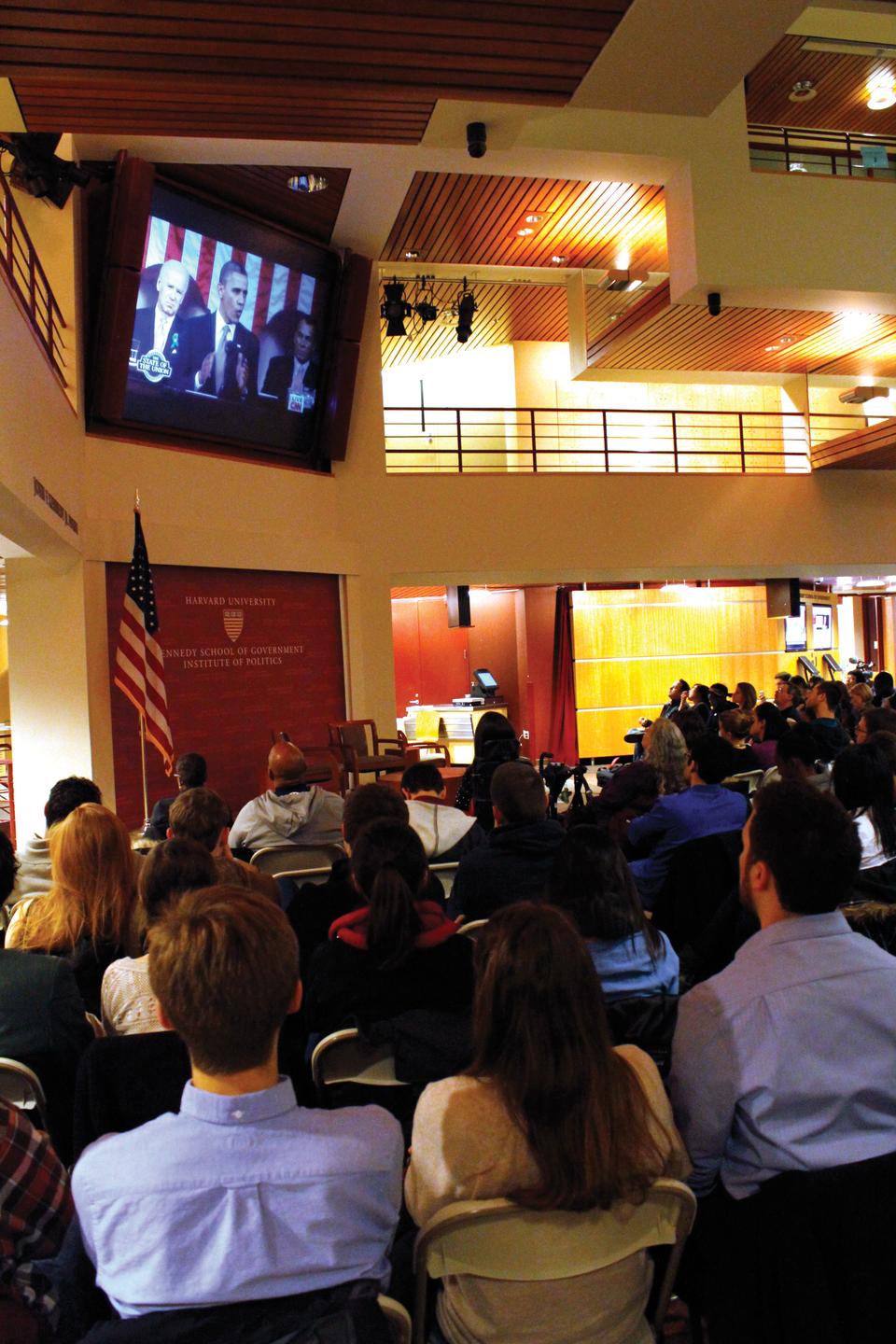
News
HMS Is Facing a Deficit. Under Trump, Some Fear It May Get Worse.

News
Cambridge Police Respond to Three Armed Robberies Over Holiday Weekend

News
What’s Next for Harvard’s Legacy of Slavery Initiative?

News
MassDOT Adds Unpopular Train Layover to Allston I-90 Project in Sudden Reversal

News
Denied Winter Campus Housing, International Students Scramble to Find Alternative Options
Students Convene for Obama’s Fifth SOTU
President Emphasizes Gun Control and Economy in Tuesday night's Address

Students crowded into the Harvard Kennedy School’s John F. Kennedy Jr. Forum on Tuesday night to watch President Obama deliver his first State of the Union Address since his re-election in November. Obama used the address to outline his second-term strategy and present strong opinions on the economy, research and development, infrastructure, the cost of higher education, immigration reform, and gun control.
The President opened with a series of economic proposals focused largely on strengthening the middle class. He addressed the issue of consistently high levels of unemployment and the need to cut spending and increase taxes on the wealthy in order to reduce the federal deficit. He also stressed the importance of investing in rapidly deteriorating infrastructure to help bolster the American economy. Student impressions of the address were mostly positive.
“The speech was more than just rhetoric,” said Simon M. Thompson ’14, president of the Harvard Democrats. “It demonstrated that the President is committed to making our nation stronger.”
Brandon D. Moore, a second-year student at the Harvard Kennedy School, said it was exciting “to hear more of an emphasis on issues of poverty.” The President endorsed increasing the federal minimum wage to $9 an hour, asserting that the measure would lift millions of Americans above the poverty line.
The President also stressed the importance of avoiding “the sequester,” a series of automatic budget cuts that will come into effect on March 1. Republicans and Democrats have yet to agree on how to avoid the cuts, which economists warn could send the economy back into recession. He also addressed the importance of education, pressing for universal, high-quality preschool education and lower costs at universities. He urged Congress to modify the Higher Education Act and use cost as a factor in determining federal aid to universities.
Not all students were wholly impressed with the speech.
Matthew J. Disler ’16 was concerned that the President was “trying to implement proposals that Republicans would not be able to get behind.” Although the speech focused predominantly on the economy, Disler said he felt that “gun violence and the Newtown shootings were the high points of the speech.” The President called for increased use of background checks, stating that gun control “deserves a vote” in Congress.
Many of the issues the President touched on in the speech, including gun control, have recently provoked partisan contention. The President’s remarks on the need for tax reform and the removal of loopholes for the wealthy, however, brought members of Congress from both parties to their feet.
The president’s pledge to sign a bill on comprehensive immigration reform also drew applause from across the aisle. To Thomas J. Gaudett ’14, it was encouraging to see the president “make policy proposals that could be attractive to both sides.”
Want to keep up with breaking news? Subscribe to our email newsletter.
